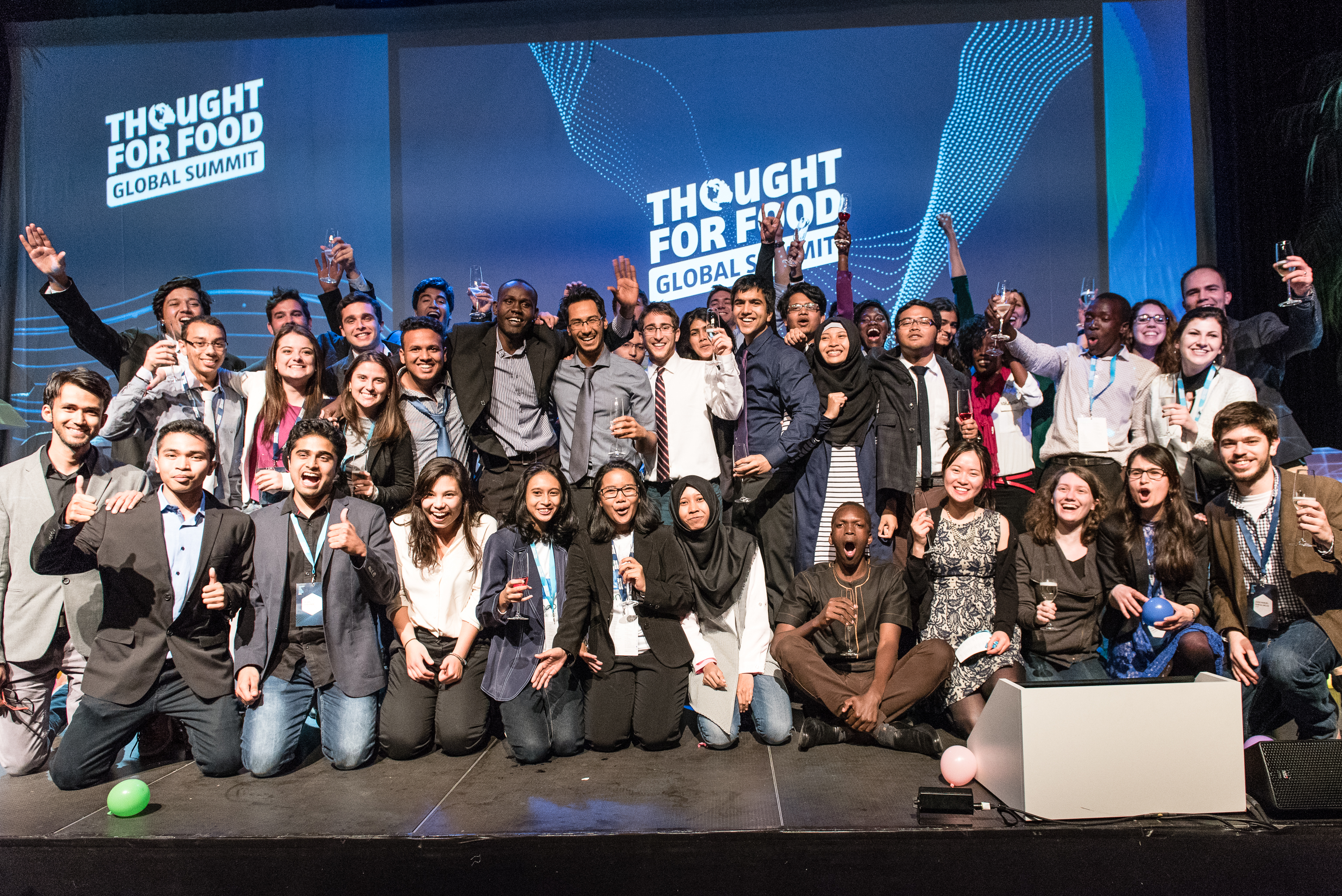Editor’s Note: Thought for Food is a global movement that engages and empowers university students from around the world in the mission of feeding 9 billion people by 2050.
In April, the organization held the TFF Global Summit which culminated in a pitch event between 10 different startups and ideas. Here Lorena Galvan, one of the organizers, writes about the event and TFF’s mission.
————————
When you think of next-generation food and agricultural innovation, what comes to mind? Mining asteroids? Making jewelry from smog? Talking freely under water? Probably not. But if you attended the Thought For Food Global Summit, these ideas, connections, and breakthroughs would have uprooted your assumptions to give you insight into the potential future of our food system.
It was this theme, Uprooting Assumptions, that led a contingency of 350 people through two days of engaging workshops, provocative talks, and pitches from 10 finalist teams vying for cash prizes.
The theme celebrates and encourages us as stakeholders, in today’s ever changing food system, to uproot the assumptions and biases we have, so we may chance the opportunity to innovate and collaborate towards feeding 9+ billion people by 2050.
Thought For Food (TFF) believes that uprooting the assumptions and biases we have will power the innovation and collaboration needed to feed more than 9 billion people by 2050, especially when people from across disciplines, backgrounds, ages and countries connect and collaborate.
We saw this in our incredible speaker presentations, such as Chris Lewicki from Planetary Resources talking on mining asteroids for precious materials for our food system; Daan Roosegaarde from Roosegaarde Studios the Smog Free Tower that transforms smog in the air into reusable materials; and Jordan McRae from Trillium Technologies spoke about how communicating underwater can allow for better research in the aquaculture industry. These speakers used personal experiences to challenge conventional thinking in the hope of creating world-changing impact.
This mindset was also clear in the 10 brilliant pitches from the TFF Challenge Finalists. These 10 teams were chosen from applications from 2,423 university students, from 105 countries and 578 universities.
The solutions presented ranged from precision agriculture to fortified foods, from apps for fair agricultural labor markets to online livestock investments, from open data honeybee technology to transportation tools for post-harvest loss reductions.
The winning team, Kulisha, was in another sector altogether, sustainable fish feed. The team presented a solution to reduce environmental degradation through the rapidly growing aquaculture industry. This group of university students banded together to form this start-up and began working with black soldier flies to create a low-cost sustainable fish feed to replace the need for widespread fishing of local anchovies, which harms marine ecosystems and fishing villages.
Kulisha was awarded the TFF Grand Prize of $10,000, which they will use to launch their business and continue R&D with partnering fish farms in Kenya, which is home to the majority of the team.
Cash prizes were also awarded to the second place team, Biteback, an alternative, nutrient-dense, insect-based replacement for traditional palm oil, based in Indonesia. Additionally, France-based Peer to Peer Probiotics won an award from the Kirchner Food Fellows for creating yeast and bacteria cultures that produce essential vitamins to increase the nutritional intake in everyday fermented foods. And Fruiti-Cycle, which aims to decrease post-harvest losses by building affordable and effective food transportation and refrigerated storage units that can attach to motorcycles in Uganda, allowing for safer transportation of food, won the Take it to the Farmer Prize sponsored by The Norman Borlaug Foundation.
Have news, tips, or want to write a guest commentary? Get in touch [email protected].





